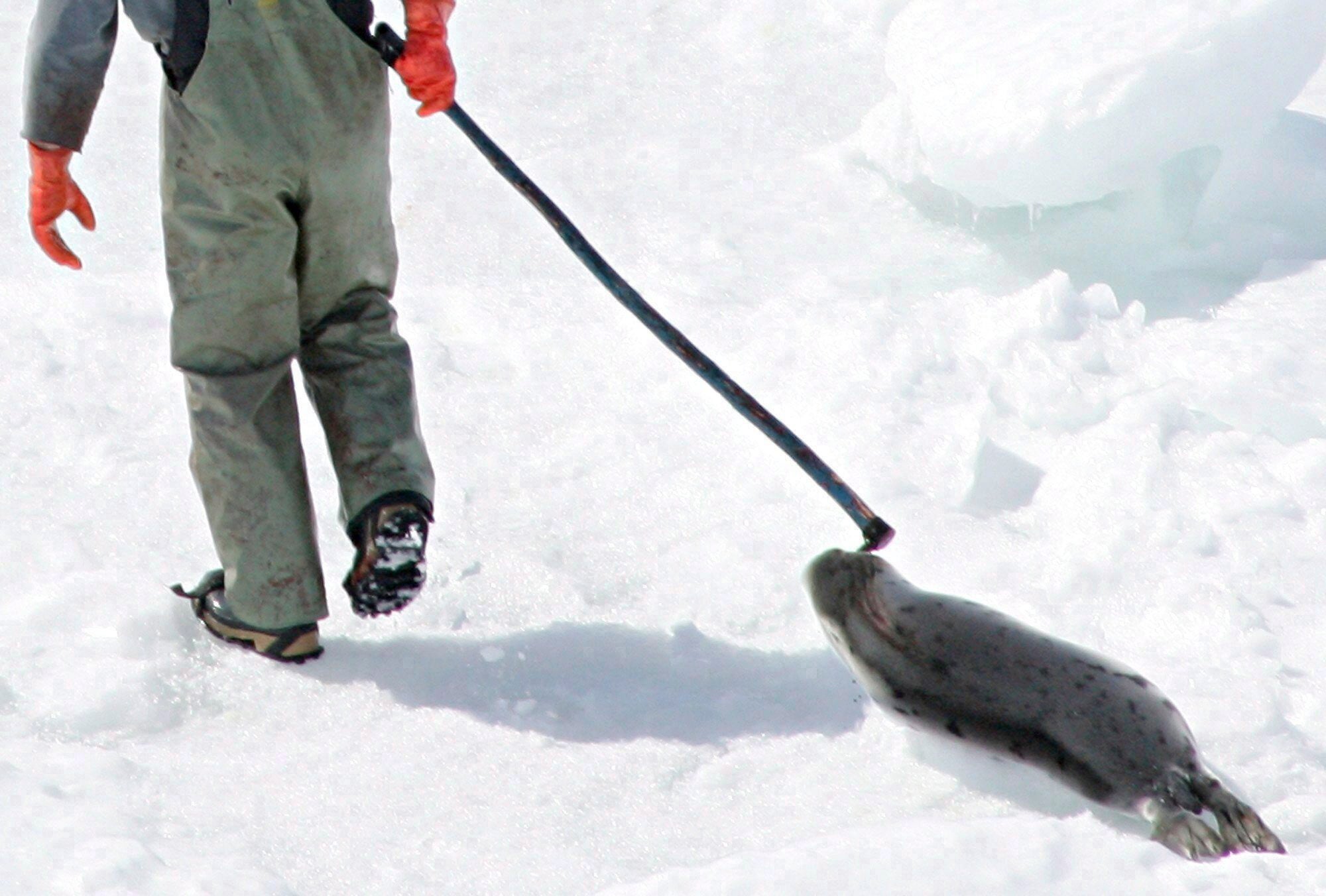Canadian company pleads guilty to shipping banned seal oil to US
A Canadian company has pleaded guilty to violating federal law by illegally selling seal oil capsules to American customers

Your support helps us to tell the story
From reproductive rights to climate change to Big Tech, The Independent is on the ground when the story is developing. Whether it's investigating the financials of Elon Musk's pro-Trump PAC or producing our latest documentary, 'The A Word', which shines a light on the American women fighting for reproductive rights, we know how important it is to parse out the facts from the messaging.
At such a critical moment in US history, we need reporters on the ground. Your donation allows us to keep sending journalists to speak to both sides of the story.
The Independent is trusted by Americans across the entire political spectrum. And unlike many other quality news outlets, we choose not to lock Americans out of our reporting and analysis with paywalls. We believe quality journalism should be available to everyone, paid for by those who can afford it.
Your support makes all the difference.A Canadian company has pleaded guilty to violating federal law by illegally selling seal oil capsules to American customers.
The oil is made from the blubber of seals and sold as a nutritional supplement with a promise of containing healthy fats. The company, FeelGood Natural Health Stores of Whitby, Ontario, sold and transported capsules made from harp seals, the U.S. Department of Justice said Monday.
The company's actions are illegal under the Marine Mammal Protection Act, which makes it unlawful to transport or sell any marine mammal or byproducts for most commercial purposes. The act protects the harp seal throughout its range, including the North Atlantic and Artic oceans and the waters off New England.
FeelGood shipped more than 900 bottles of the capsules worth more than $10,000 to the U.S. from 2019 to 2021, the Justice Department said.
"The illegal importation of marine mammal products not only violates the Marine Mammal Protection Act but also jeopardizes the safety of protected species such as harp seals,” said U.S. Attorney Dawn N. Ison for the Eastern District of Michigan, which prosecuted the case.
Harp seals are listed as a special species of “least concern” by the International Union for Conservation of Nature, though their population declined to low levels in the 1960s due to hunting. They now have a global population of about 7 million, according to the National Oceanic and Atmospheric Administration. They have been hunted off of Canada for thousands of years.
FeelGood entered its plea on Monday and will be sentenced on Sept. 28. Representatives for the company did not respond to requests for comment on Tuesday. The company pleaded guilty to one count of violating the Lacey Act, which combats wildlife trafficking, in violation of the Marine Mammal Protection Act.
A plea agreement states that the company will pay a fine of $20,000 and face three years of probation, during which it must create and implement a compliance plan, train employees and cooperate with the U.S. government, the Justice Department said. The maximum sentence for the charge of violating the Lacey Act, is a $500,000 fine and five years probation, the department said.
The Justice Department said FeelGood sold the seal oil capsules via its own website and a third-party platform. The company's website describes it as a worldwide shipper of supplements and natural remedies. Seal oil products were still on the company's website on Tuesday and were marked with a notice that they cannot be shipped to the U.S.
When it was shipping the seal oil to the U.S., the company sent it direct from Canada or through fulfillment centers run by a third party in the U.S., the Justice Department said. In some instances, it sent the items to a covert U.S. Fish and Wildlife Service special agent, the Justice Department said.
“Our wildlife laws were passed to ensure the continued existence and enjoyment of these natural resources for future generations,” said Assistant Attorney General Todd Kim of the Justice Department’s Environment and Natural Resources Division.